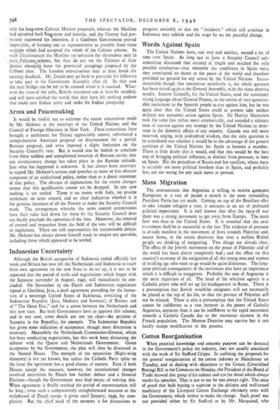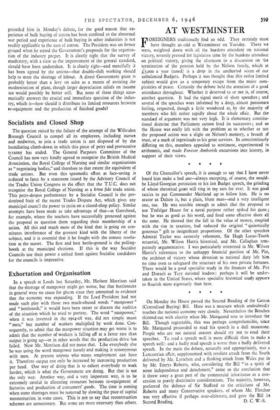Cotton Reorganisation
When practical knowledge and concrete purpose can be detected in the Government's policy for industry, they are usually associated with the work of Sir Stafford Cripps. In outlining the proposals for the general reorganisation of the cotton industry at Manchester on Tuesday, and in dealing with objections to the Cotton (Centralised Buying) Bill in the Commons on Monday, the President of the Board of Trade showed that grasp of his subject and eye for detail which always marks his speeches. That is not to say he was always right. The onus of proof that bulk buying is superior to the delicate and well-tested machinery of the Liverpool Cotton Exchange obviously rests with the Government, which wishes to make the change. Such proof was not provided either by Sir Stafford or by Mr. Marquand, who preceded him in Monday's debate, for the good reason that ex- perience of bulk buying of cotton has been confined to the abnormal war period and experience of bulk buying in other industries is not readily applicable to the case of cotton. The President was on firmer ground when he stated the Government's proposals for the organisa- tion of the industry proper. It is clearly right that the survey of machinery, with a view to the improvement of the general standard, should have been undertaken. It is clearly right—and mercifully it has been agreed by the unions—that double-shift working should help to meet the shortage of labour. A direct Government grant is probably better than a levy on sales as a means of assisting the modernisation of plant, though larger depreciation reliefs on income tax would possibly be better still. But none of these things auto- matically answers the crucial and immediate question of the indus- try, which is—how should it distribute its limited resources between re-equipment and the production of finished goods?



































 Previous page
Previous page